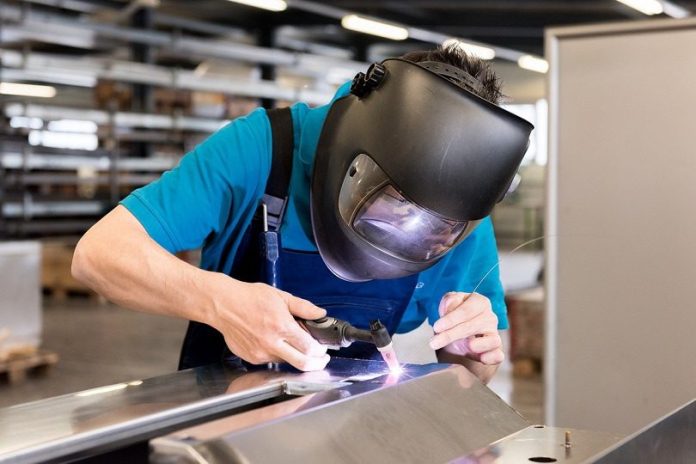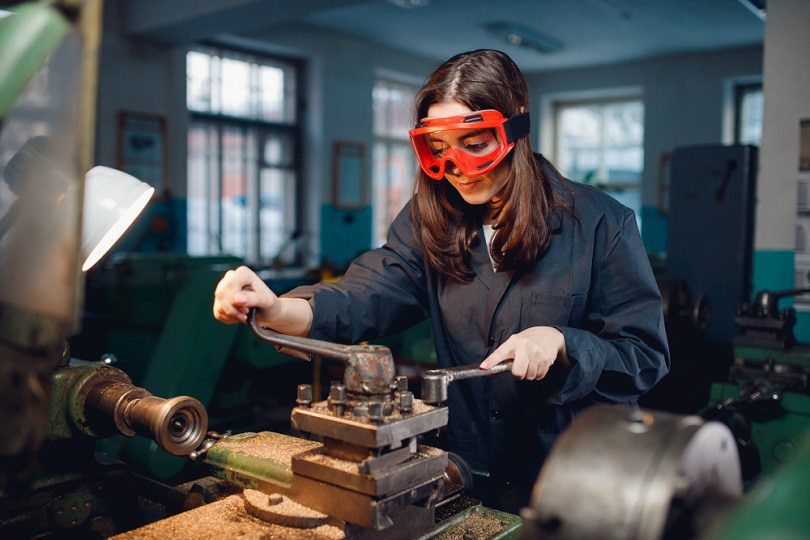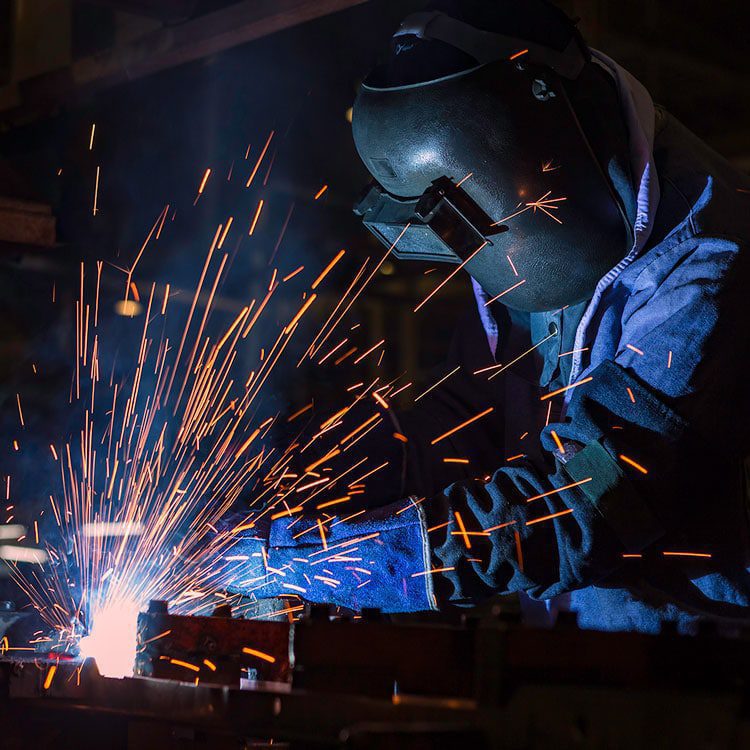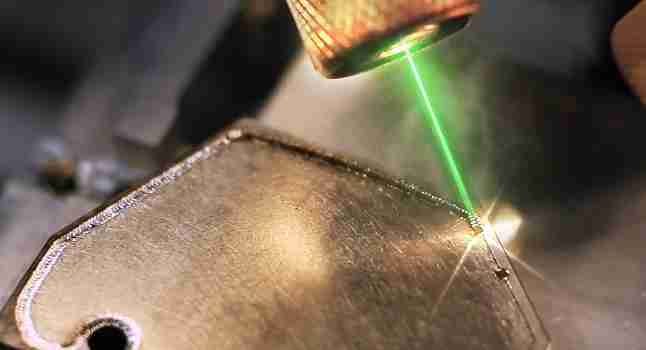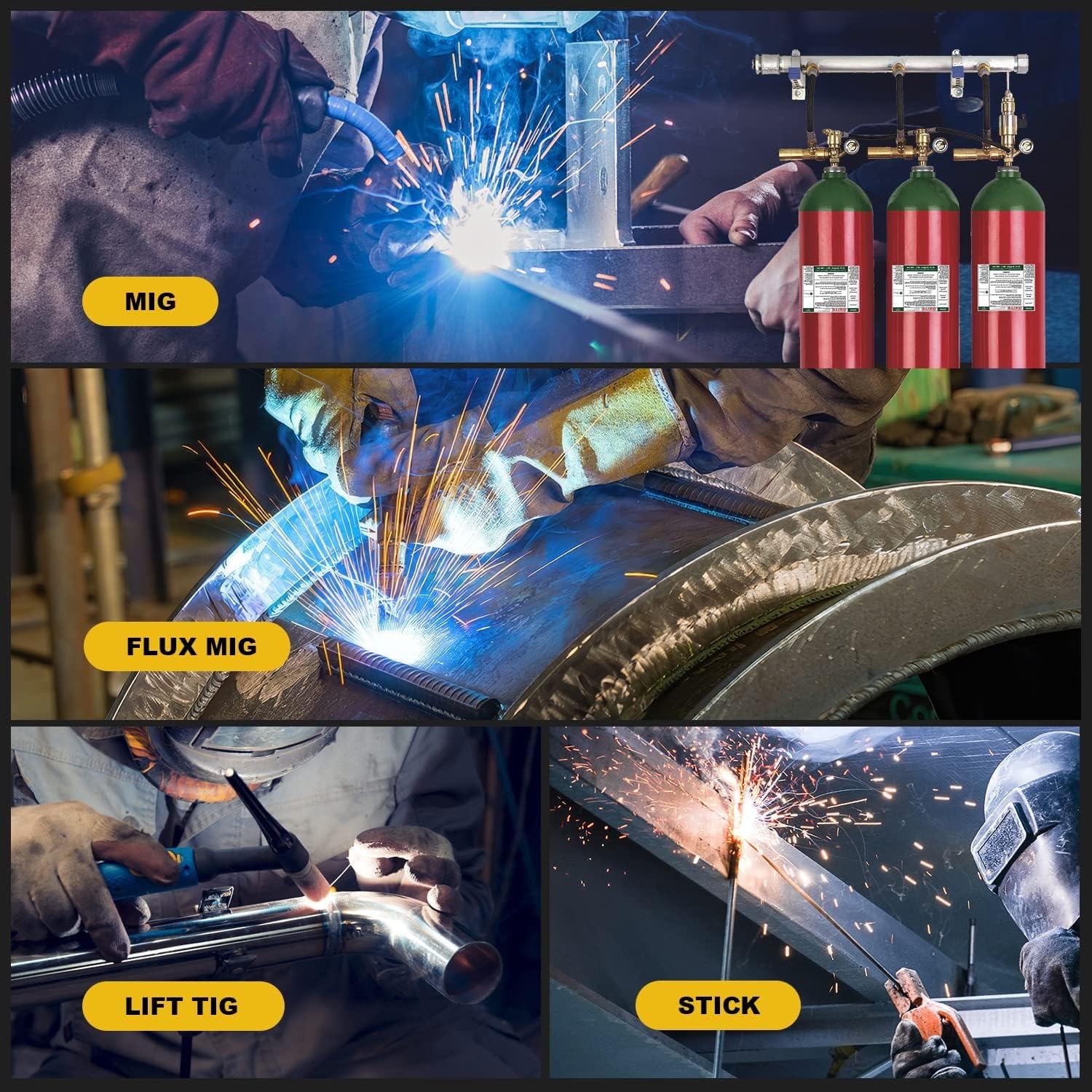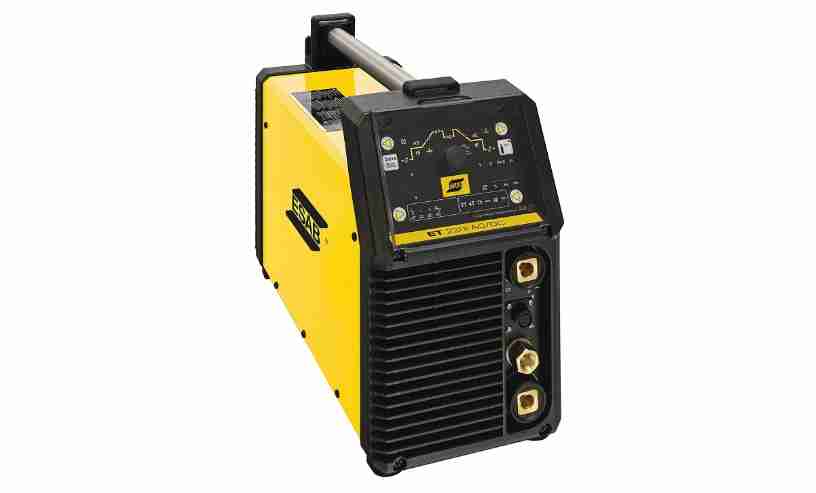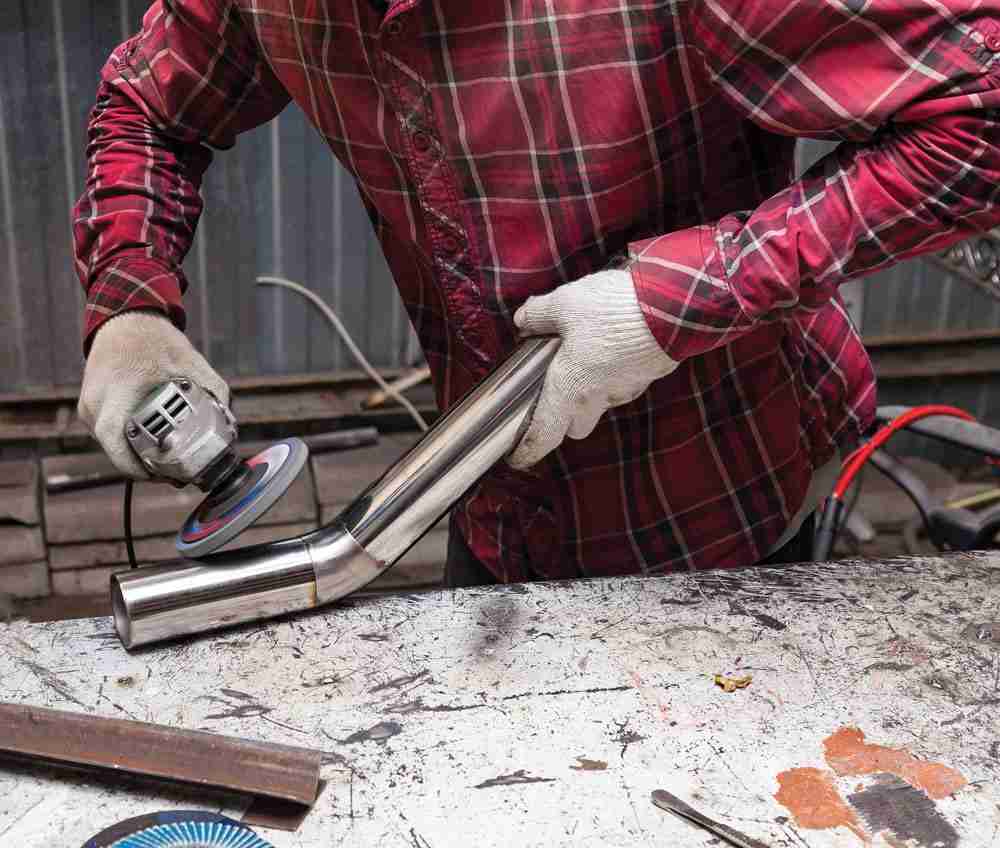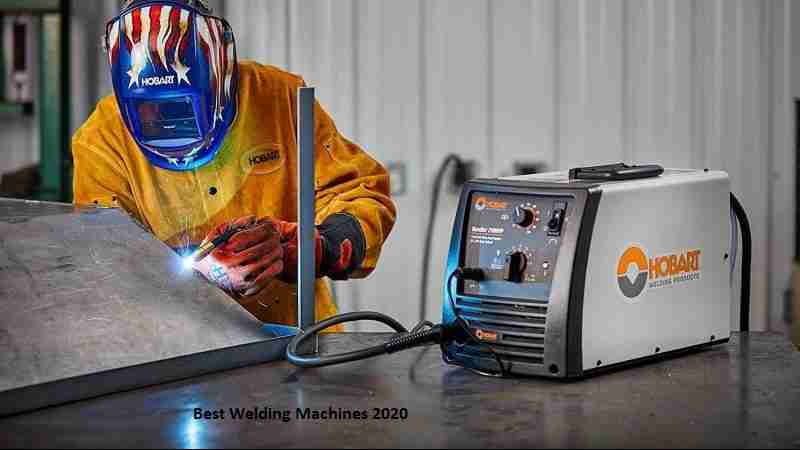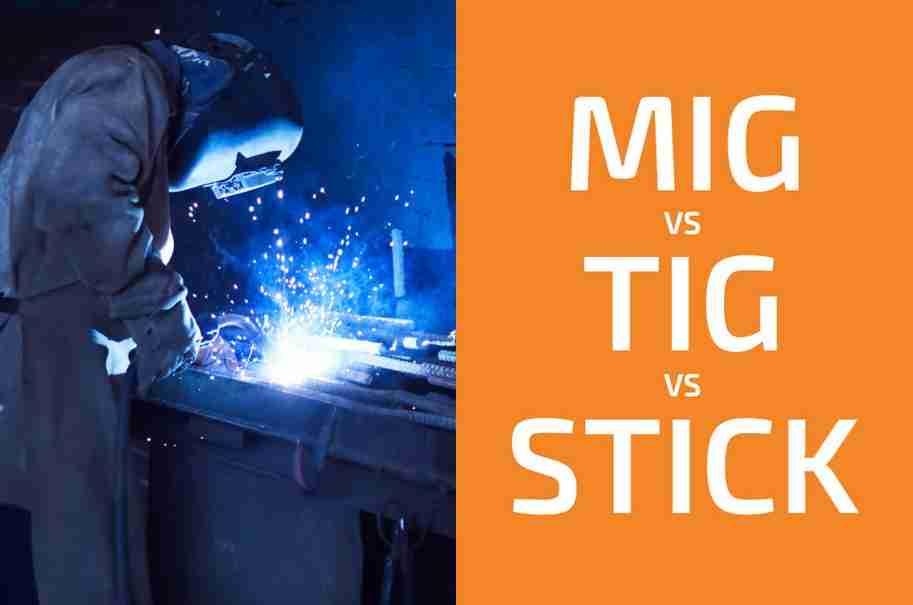Are you considering a career as a welder?
Before leaping, weighing the pros and cons is essential. Welding can be lucrative and rewarding, offering opportunities for skills development, job stability, and the ability to work on diverse projects.
However, it also requires physical stamina, technical knowledge, and a commitment to safety.
In this article, we’ll explore the various factors to consider when deciding if becoming a welder is an intelligent choice for you.
Pros of becoming a welder
High earning potential
One of the most significant advantages of becoming a welder is the high earning potential. Welders are in high demand, and their specialized skills and expertise command competitive wages.
You can expect your earnings to increase significantly as you gain more experience and expertise in different welding techniques. Welders certified in specialized areas, such as underwater or pipeline welding, often earn even higher wages.
Job stability
In a constantly evolving job market, welders enjoy a sense of stability. Welding skills are essential in various industries, including construction, manufacturing, aerospace, and automotive, making welders in high demand.
As long as there is a need for infrastructure development and machinery and equipment production, there will be a continuous need for skilled welders. This job stability can provide security and peace of mind for those considering a career in welding.
Opportunity for growth
Welding offers ample opportunities for growth and advancement. As you gain experience and expand your skill set, you can take on more challenging projects and increase your responsibilities.
Many welders become welding supervisors and quality inspectors or even start welding businesses. Pursuing specialized training and certifications can enhance your career prospects and open doors to higher-paying positions and unique opportunities.
Versatile career options
Another advantage of becoming a welder is its versatility regarding career options. Welding skills are transferable across various industries, allowing you to explore various fields and find your niche. Whether you are interested in working on construction sites, in manufacturing plants, or even underwater, ample career paths are available to suit your preferences and passion for welding.
Cons of becoming a welder
Physical Demands
While welding can be a rewarding career, it is essential to consider the physical demands associated with the job. Welders often work in physically demanding positions that require them to remain standing for long hours, bend and reach into awkward positions, and handle heavy tools and materials. This can strain the body and lead to fatigue and musculoskeletal issues if proper precautions and body mechanics are not observed.
Work environment hazards
Welding takes place in environments that can pose various hazards. Exposure to intense heat, sparks, and harmful fumes and gases can result in burns, eye injuries, and respiratory issues if proper safety measures are not followed.
Welders must diligently wear appropriate personal protective equipment (PPE), such as welding helmets, gloves, and flame-resistant clothing, to mitigate the risks associated with their work environment.
Health risks
In addition to the immediate hazards associated with welding, long-term health risks should also be considered. Prolonged welding fumes and gas exposure can lead to respiratory problems, including lung cancer and chronic obstructive pulmonary disease (COPD).
Welders must prioritize their health and take preventive measures, such as working in well-ventilated areas, using local exhaust ventilation systems, and wearing respirators when necessary.
Competitive job market
While welding offers excellent job stability, it is worth noting that the job market can be competitive, especially in highly desirable industries and locations.
As with any career, gaining a competitive edge requires continuous learning, staying up to date with the latest welding techniques and technologies, and networking with industry professionals. By developing a solid skill set and establishing a reputation for excellence, you can increase your chances of securing desirable job opportunities.
Training and Education
Certification requirements
To become a welder, you must obtain certification in specific welding processes. Certifications are available for various techniques, such as shielded metal arc welding (SMAW), gas metal arc welding (GMAW), and tungsten inert gas welding (TIG).
These certifications validate your knowledge and skills in each welding process, allowing employers to assess your proficiency. Certification requirements may vary depending on the country and industry but generally involve written exams and practical welding tests.
Trade schools and apprenticeships
Many aspiring welders acquire training through trade schools or vocational programs. These programs provide comprehensive hands-on training and classroom instruction, teaching students the fundamentals of welding, including safety practices, blueprint reading, and welding techniques.
Apprenticeships are another valuable option for gaining practical experience while working under the guidance of experienced welders. Apprenticeship programs typically last several years and involve a combination of on-the-job training and classroom instruction.
Continuing education
In the welding industry, it is crucial to continually update your skills and knowledge to keep up with advancements in technology and techniques. Continuing education programs and workshops offer opportunities to refine your skills and learn new welding methods.
These programs may focus on specialized areas, such as pipe welding or robotic welding, allowing you to expand your expertise and increase your marketability in the industry.
Specialized training
While basic welding skills are essential, specialized training can open doors to specialized career paths. For example, underwater welding requires specific training in diving and welding techniques. Similarly, aerospace welding demands familiarity with aerospace materials and strict quality standards. By pursuing specialized training, you can position yourself for unique and well-paid opportunities within the welding field.
Career paths
Construction and infrastructure
One of the most common career paths for welders is in the construction and infrastructure industry. Welders play a vital role in the construction of buildings, bridges, highways, and other infrastructure projects. Whether it is welding steel structures, reinforcing bars, or pipelines, construction welding offers a diverse range of projects and the satisfaction of contributing to the development of communities.
Manufacturing
Welding is an integral part of the manufacturing industry. Manufacturers rely on skilled welders to fabricate metal products, machinery, and equipment used in various sectors. From automobile parts to industrial machinery, welders are responsible for creating the durable and reliable joints that hold these products together.
Aerospace and aviation
The aerospace and aviation industry demands the highest quality and precision in welding. Welders in this field work with advanced materials, such as titanium and aluminum alloys, ensuring that aircraft components are securely joined.
From building aircraft frames to assembling engine parts, aerospace industry welders contribute to air travel’s safety and efficiency.
Automotive industry
Automotive welding involves assembling and fabricating various vehicle components, including chassis, exhaust systems, and body panels. Skilled welders are crucial in ensuring vehicles’ structural integrity and safety. With the increasing demand for electric vehicles and lightweight materials, the automotive welding sector offers exciting opportunities for welders with the necessary skill set.
Shipbuilding and offshore drilling
Shipbuilding and offshore drilling rely heavily on welding expertise. Welders in these industries contribute to constructing and maintaining ships, oil platforms, and other offshore structures.
The unique challenges of welding in marine environments, such as dealing with saltwater corrosion, require welders to possess specialized knowledge and skills.
Work environment
Indoor vs. outdoor work
Welders can work in a variety of environments, including both indoor and outdoor settings. Construction sites often entail outdoor work, exposing welders to seasonal weather and environmental factors. Indoor work may involve welding in controlled environments like workshops or manufacturing plants. The choice between indoor and outdoor work often depends on personal preference and the specific welding career path pursued.
Travel or stationary
Specific welding jobs may require extensive travel, while others may be more stationary. For example, welding in the construction industry may involve traveling to different project sites, sometimes across state or national borders.
On the other hand, welders in manufacturing or aerospace industries may work primarily at a fixed location. The decision between travel and stationary work depends on one’s desire for variety and willingness to relocate.
Safety precautions
Welding involves inherent risks, making safety precautions crucial. Welders must adhere to strict safety protocols to minimize the chances of accidents and injuries.
This includes wearing appropriate PPE, such as helmets, gloves, and protective clothing, as well as ensuring proper ventilation and fire prevention measures. Welders should also receive training in emergency response procedures and first aid.
Teamwork vs. independent work
The nature of welding work can vary regarding collaboration and teamwork. Some projects may require welders to work independently, focusing on their assigned tasks, while others necessitate working collaboratively with a team of welders, fabricators, and engineers. The ability to adapt to both independent work and teamwork is essential for a successful welding career.
The economic outlook for welders
Industry growth
The welding industry continues to grow steadily, propelled by infrastructure development, manufacturing advancements, and technology-driven projects. As the global demand for construction and manufacturing increases, so does the need for skilled welders to support these sectors. Furthermore, emerging industries such as renewable energy and electric vehicle manufacturing present new opportunities for welders to apply their expertise.
Job opportunities
The demand for welders will remain strong, presenting ample job opportunities. Skilled welders who stay updated with the latest technologies, materials, and techniques are sought after by employers in various industries. Job prospects may vary by location and industry, with certain regions or sectors experiencing higher demand than others. To maximize job opportunities, it is advisable to consider expanding your skill set beyond the fundamentals of welding.
Salary Potential
Welders can achieve a competitive salary, particularly if they possess specialized skills and certifications. The earning potential can vary depending on experience, industry, and geographic location. Welders working in highly demanding industries or performing highly specialized welding processes often command higher wages. Continuous learning and professional development can also increase earning potential as welders progress.
Job satisfaction
Creating tangible results
One of the most satisfying aspects of being a welder is seeing tangible results of your work. Whether constructing a building, building a ship, or fabricating intricate metal artwork, welders can witness their creations come to life. The sense of accomplishment derived from creating something lasting and functional can be gratifying.
Problem-solving challenges
Welding often involves problem-solving, as welders must figure out how to join materials effectively and efficiently. Each welding project presents its unique challenges and requires innovative solutions. The ability to troubleshoot and find creative ways to overcome obstacles enhances job satisfaction and keeps the work engaging and intellectually stimulating.
Working with diverse materials
Welding allows you to work with various materials, including metals and alloys. Each material has its properties and characteristics, requiring different welding techniques and approaches. Working with diverse materials enhances your skills and offers variety in your daily work, keeping it interesting and exciting.
Opportunities for creativity
Welding is not just about joining metals together; it can also be a form of art. From sculptural welding to custom fabrications, welders can showcase their creativity and artistic side. This aspect of welding can provide a fulfilling and satisfying outlet for those who enjoy blending technical skills with artistic flair.
Steps to become a welder
Research and exploration
Before embarking on a welding career, conducting thorough research and exploration is essential. Learn about the different types of welding processes, industries that employ welders, and the skills and certifications required.
Additionally, reach out to experienced welders or professionals in the field to gain insights about the profession and better understand the day-to-day realities of being a welder.
Education and training
To become a welder, acquiring the necessary education and training is crucial. Consider enrolling in a trade school or vocational program that offers comprehensive welding courses. These programs will provide the foundational knowledge and hands-on training to start your welding career. Alternatively, explore apprenticeships that allow you to learn and earn simultaneously through on-the-job training and mentorship.
Apprenticeships and practical experience
Gaining practical experience through apprenticeships or on-the-job training is invaluable for becoming a skilled welder. Apprenticeships typically involve working under the guidance of experienced welders, allowing you to learn from their expertise and gain hands-on experience on real projects. This practical experience will help you hone your skills, develop industry-specific knowledge, and enhance your employability.
Certification and licensure
Obtaining industry-recognized certifications is crucial to establishing credibility and increasing job prospects as a welder. Certification requirements may vary depending on the region and industry but typically involve written and practical exams to assess your welding skills. Additionally, some welders may need state or local licenses, especially when working in specialized areas such as underwater or pipeline welding.
Job search and networking
Once you have completed your training and certification and gained practical experience, it’s time to start your job search. Update your resume and create a portfolio showcasing your welding skills and projects. Leverage networking opportunities to connect with industry professionals, attend job fairs, and explore online platforms dedicated to welding jobs. Building a solid professional network and maintaining connections can help you access hidden job opportunities and advance your welding career.
Personal qualities for success
Attention to detail
Attention to detail is crucial for welders, as even small mistakes or imperfections can compromise the quality and integrity of a weld. Focusing on precision and adhering to welding specifications and standards ensures the welded joint is strong, durable, and safe. Cultivating and maintaining attention to detail is essential for achieving success as a welder.
Manual dexterity
Welding requires exceptional manual dexterity, as welders must precisely handle welding torches and tools. Manipulating tools and materials accurately while maintaining control and stability is essential for creating clean and effective welds. Regular practice and fine-tuning manual dexterity skills can help welders excel in their craft.
Physical stamina
Given the physical demands of welding, having good physical stamina is necessary. The ability to withstand long hours of standing, lifting heavy materials, and maintaining a stable welding posture is crucial for avoiding fatigue and preventing musculoskeletal injuries. Regular exercise and overall physical fitness can improve stamina and performance as a welder.
Problem-solving skills
Welding often involves problem-solving, whether determining optimal welding techniques or resolving issues once they arise.
The ability to think critically, analyze situations, and devise practical solutions is essential for troubleshooting welding challenges. Developing problem-solving skills through experience and continuous learning enables welders to tackle complex projects confidently.
Safety-consciousness
Safety should always be a top priority for welders. They are being safety-conscious means adhering to safety protocols, consistently using personal protective equipment, and prioritizing safe work practices.
By being vigilant and proactive in identifying and mitigating potential hazards, welders can ensure their well-being and create a safer work environment for themselves and others.
Adaptability
The welding industry is dynamic and constantly evolving, requiring welders to be adaptable.
Being open to learning new techniques and technologies and embracing change is crucial for staying relevant and competitive. Adaptability enables welders to take on diverse projects and adjust to different work environments, ultimately enhancing their career opportunities and success.
Conclusion
Becoming a welder offers a range of advantages and opportunities for personal and professional growth. From the high earning potential and job stability to the satisfaction of creating tangible results and solving complex problems, there are many reasons why pursuing a welding career can be an intelligent choice.
However, it is essential to consider the physical demands, hazards, and health risks associated with the profession. You can embark on a rewarding and fulfilling journey as a welder by obtaining the necessary training and certifications, staying updated with industry advancements, and cultivating the personal qualities for success.
Whether you choose to work in construction, manufacturing, aerospace, automotive, or any other welding-intensive industry, your skills will be in demand, allowing you to build a secure and prosperous future.


